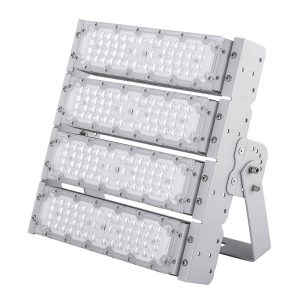Emergency sensor lights have become an essential component in modern safety and security systems. These lights, equipped with advanced sensor technology, automatically illuminate in emergency situations to guide individuals to safety. This article delves into the industry of emergency sensor lights, exploring their functionality, applications, and the technological advancements that have made them a vital tool in emergency preparedness.
Introduction to Emergency Sensor Lights
Emergency sensor lights are designed to detect various types of emergencies, such as power outages, fires, or smoke, and immediately activate their lighting systems to provide illumination. These lights can be mounted on walls, ceilings, or even as portable units, making them versatile for various environments, including homes, offices, and public buildings.
Functionality of Emergency Sensor Lights
The primary function of an emergency sensor light is to provide illumination during emergencies. However, modern emergency sensor lights come with a variety of features to enhance their effectiveness and user experience. Some of these features include:
– Motion sensors: Detect movement in the vicinity and activate the light when someone is present.
– Photoelectric sensors: Automatically turn on the light when ambient light levels drop below a certain threshold, indicating a power outage or darkness.
– Smoke and fire sensors: Trigger the light when smoke or fire is detected, alerting individuals to potential danger.
– Audible alarms: Some emergency sensor lights come with built-in alarms to alert individuals to the emergency situation.
Applications of Emergency Sensor Lights
Emergency sensor lights are widely used in various applications, including:
– Residential: Homeowners can install emergency sensor lights in hallways, staircases, and outdoor areas to ensure easy navigation during power outages or emergencies.
– Commercial: Businesses can use emergency sensor lights to comply with safety regulations and provide a safe environment for employees and customers.
– Public buildings: Schools, hospitals, and government buildings can install emergency sensor lights to ensure the safety of their occupants during emergencies.
– Industrial: Factories and warehouses can use emergency sensor lights to improve safety in large, dark spaces.
Technological Advancements in Emergency Sensor Lights
Over the years, technology has significantly improved the functionality and efficiency of emergency sensor lights. Some of the key technological advancements include:
– LED lighting: Emergency sensor lights now use LED technology, which offers brighter illumination, longer lifespan, and lower energy consumption compared to traditional bulbs.
– Wireless connectivity: Many emergency sensor lights are now compatible with wireless systems, allowing for remote monitoring and control.
– Integration with smart home systems: Emergency sensor lights can be integrated with smart home systems, enabling homeowners to manage their lights and other smart devices through a single interface.
– Advanced sensor technology: Modern emergency sensor lights are equipped with more advanced sensors, such as multi-spectrum smoke detectors and heat sensors, to improve accuracy and reliability.
Regulatory Compliance and Standards
Emergency sensor lights must comply with various safety standards and regulations to ensure their effectiveness and safety. In the United States, for example, emergency sensor lights must meet the requirements set forth by the National Fire Protection Association (NFPA) and the Underwriters Laboratories (UL).
Market Trends and Future Outlook
The emergency sensor light industry is expected to grow significantly in the coming years, driven by increasing awareness of safety and security, as well as technological advancements. Some market trends to watch include:
– Rising demand for smart emergency sensor lights: As more homeowners and businesses adopt smart home systems, the demand for smart emergency sensor lights is expected to increase.
– Integration with other safety systems: Emergency sensor lights are increasingly being integrated with other safety systems, such as fire alarms and security cameras, to provide a comprehensive safety solution.
– Expansion into new markets: The emergency sensor light industry is expected to expand into new markets, such as developing countries, where safety and security are becoming increasingly important.
Conclusion
Emergency sensor lights play a crucial role in ensuring the safety and well-being of individuals during emergencies. With their advanced features, technological innovations, and widespread applications, these lights have become an essential component in modern safety and security systems. As the industry continues to grow and evolve, emergency sensor lights will undoubtedly become even more integral to ensuring the safety of people and property worldwide.













Explore More from Queendom Lamp
Stay updated with the latest LED technology, lighting solutions, and industry insights.
Request a Quote About Queendom